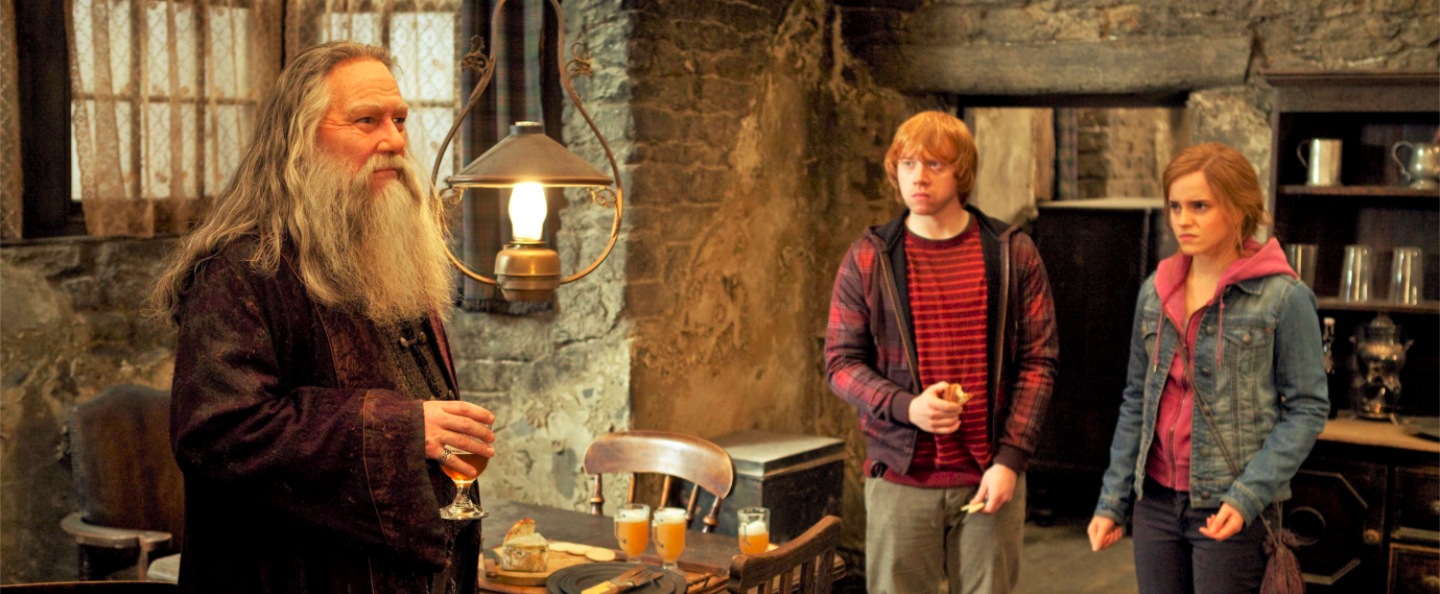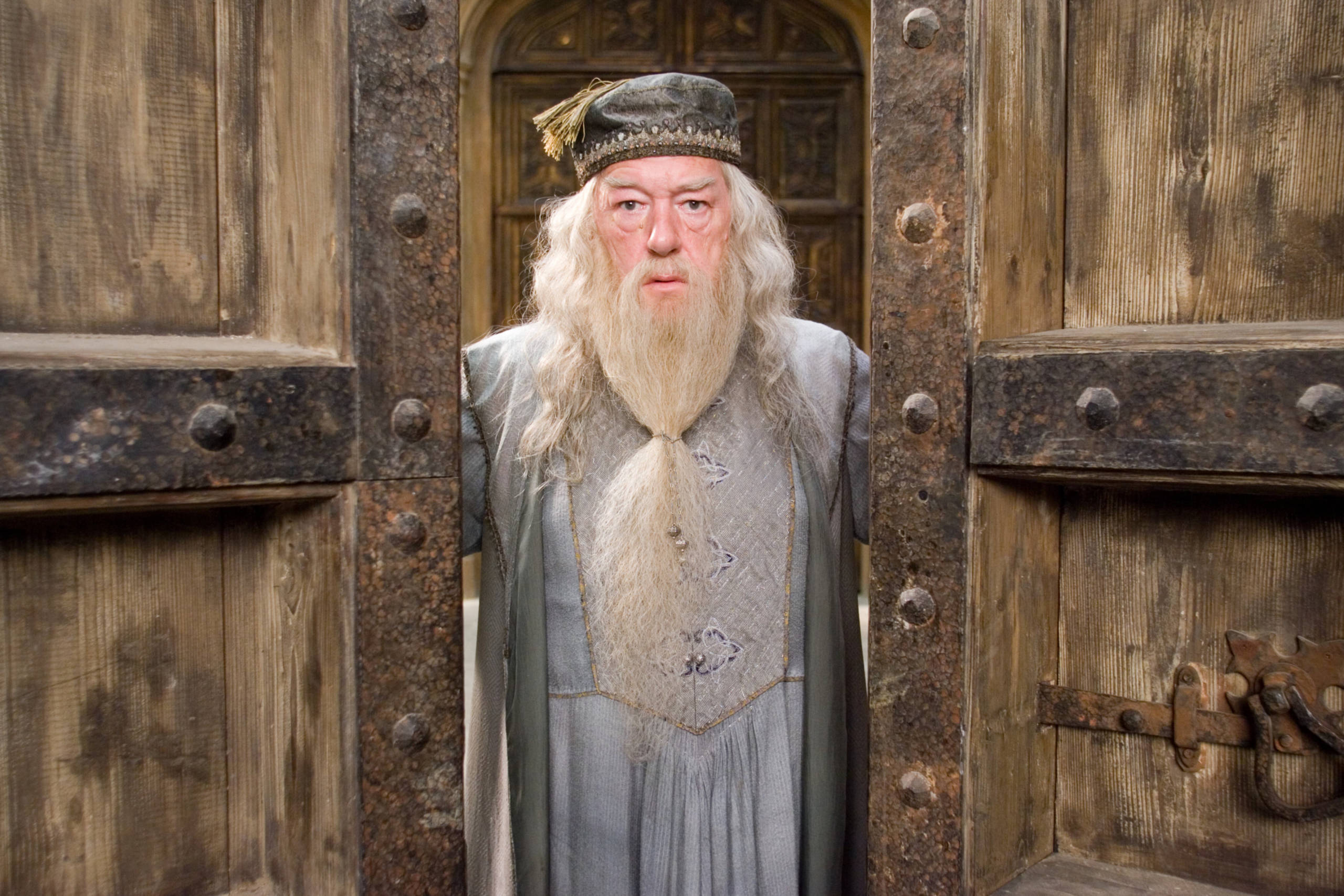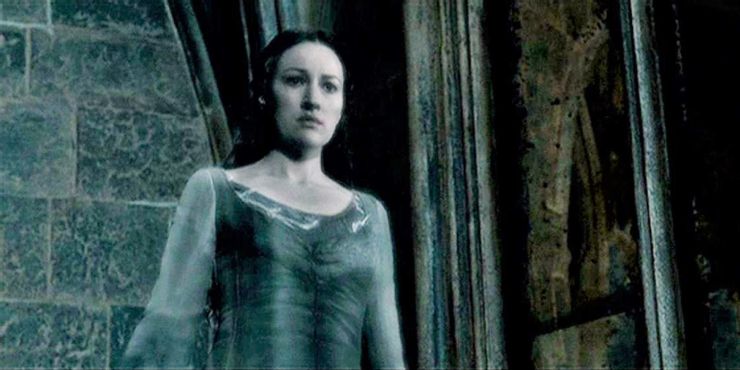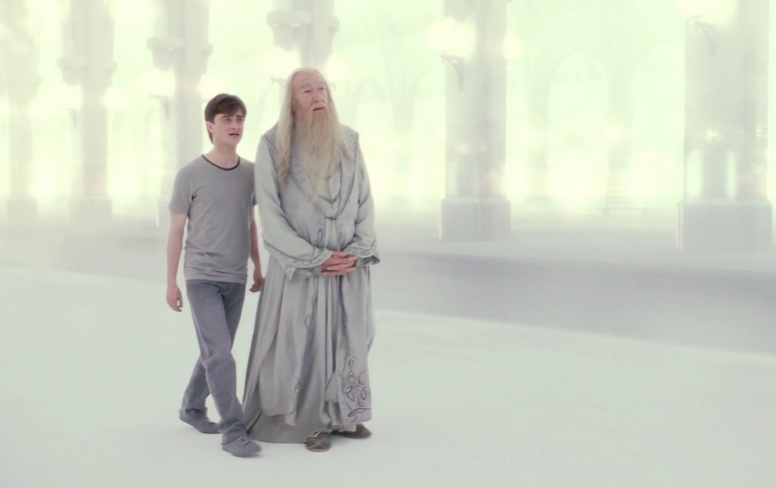Harry’s Role as Confessor and Confidant in Deathly Hallows, Part 2
July 31, 2021—One of the beautiful things about the Harry Potter books, for those of us who were young when they were being released, was that we were able to grow up with Harry. We could relate to him as he struggles to understand himself, those around him, and his place in the world, and with each new book we could see his maturity level grow with him/us.
Right up until the last book, that is, when Harry makes great leaps and bounds into adulthood that leave readers gasping for breath trying to catch up. While he still makes mistakes and has a few vestiges of childhood stubborn willfulness (his fixation on Hallows, anyone?), in many ways he seems more like a grizzled veteran than a fresh-faced boy of 17. And that is reflected in the way people treat him throughout the book.
Several characters much older than Harry, some of them complete strangers, unburden themselves to him (if reluctantly), confiding in him about things which in many cases have nothing to do with him. His sudden and polarizing position as de facto leader and symbol of those opposing Voldemort seems to inspire a spontaneous trust in others that we don’t see in previous books.
This is Part 2 of a blog series discussing these moments, the motivations behind them, and their results. This post will cover Harry’s conversations with Aberforth and Albus Dumbledore, while Part 1 discussed his conversations with others.
Aberforth Dumbledore
This is a big one. Aberforth Dumbledore appears briefly in Book 5 to serve drinks to the charter members of Dumbledore’s Army during their first, unofficial meeting. We also see his eye in Harry’s Two-Way Mirror throughout Book 7, and he saves the Trio at Malfoy Manor by sending Dobby to their aid. However, we don’t learn his name or anything else about him until right before the Final Battle, when he saves them once again from Death Eaters and helps them enter Hogwarts.

This encounter is packed with information and drama. Both Harry and we as readers have spent much of Book 7 questioning everything we thought we knew about Albus Dumbledore. The answers to all those questions (and a few more that we didn’t even think to ask) come pouring out of Aberforth in a sort of tortured confession of his regrets and a scathing indictment of his brother combined.
Aberforth has held onto these secrets and his own torment literally for about 100 years, and, for whatever reason, he decides that Harry is the right person to hear them, with apparent trust that Harry will not misuse or distribute the information. He seems to think that hearing the unvarnished truth about the Dumbledore Family and its past with Grindelwald will disillusion Harry from Dumbledore’s influence and convince him to save himself rather than continue tilting at windmills (as Aberforth sees it).
However, Aberforth is too late. Harry’s already been disillusioned about his former Headmaster. He’s already wrestled with whether he can trust the man whose instructions he’s following and what that means for the path he’s walking. He’s already come to the conclusion that his mission, to end Voldemort, isn’t about Dumbledore. It’s about doing the right thing, about standing up to evil, about protecting his fellow man — all much bigger ideas than one man, no matter who he is.
So he stands firm in the face of Aberforth’s disdain and, ultimately, convinces him that not all hope is lost, as we see when Aberforth shows up to fight in the Final Battle.
Albus Dumbledore
Victoria and I have noted many times before that Dumbledore likes to keep things close to the vest, as it were. His words to Severus Snape on the subject might as well have been his life’s motto: “I prefer not to put all of my secrets in one basket . . .”

He hoards information like a miser does gold, only doling out relevant bits to specific individuals (Snape, Harry, Moody, McGonagall, etc.) at times when he thinks it will serve his goals. But many of his secrets never make it into any of these “baskets” before his death, at which point all hope of learning the truth about Dumbledore’s past seems lost. Until we meet Aberforth, that is, who answers (from a very biased point of view) all the questions that have been swirling, and we think the story arc of that particular subplot is closed.
But wait! There’s more! Harry meets Albus in what I refer to in my head as the Death Dream and gets all of those answers straight from the source as well. (In my headcanon, magical theorists of Harry’s time and long after waste countless hours and reams of parchment debating whether Harry truly encountered Albus Dumbledore on some sort of intermediate spectral plane, or whether the whole thing was his mind’s attempt to process all the information he’d recently received along with the trauma of a second Avada Kedavra.)
Albus is one of the few people on this list who actually owe Harry an explanation, so his tearful confession of his past as an almost-Dark Lord is both satisfying and vindicating. Harry has struggled through the whole book with the thought that Dumbledore might have made unthinkable, to Harry, choices at the same age as Harry himself. Dumbledore’s (and JK Rowling’s) acknowledgement that Dumbledore is actually very flawed and a less morally laudable character than Harry is important, as it allows his removal from the pedestal that Harry’s placed him on throughout the series.
Honorable Mention: The Grey Lady aka Helena Ravenclaw

Though it could be argued that the Grey Lady’s story is integral to the plot and therefore needs to be told (much like Moaning Myrtle’s story has special significance in Book 2), I felt that Helena Ravenclaw deserves a shout-out on this list. Neither Harry nor we as readers have even heard of her before the very end of the last book of the series, and her only purpose at that point is to confirm that the last Horcrux unaccounted for is the Diadem. (In the movies, she also tells Harry its location with a riddle, but in the books, she doesn’t even do that.)
There are many ways that she could have communicated the pertinent information without mentioning her tragic past. But instead of skating over the details, she confesses to Harry that she stole the Diadem from her mother in life and explains how the Bloody Baron murdered her and then himself. It seems unrealistic that, after 1,000 years of hiding her heritage, she would slip up in this one instance by calling Ravenclaw her mother to Harry. Perhaps she also, consciously or subconsciously, needs to unburden herself like the others on this list do, though she does so with great bitterness of spirit. I think it unlikely that she can achieve true closure as a ghost, but perhaps Harry’s listening ear in some way relieves her mental and emotional pain.

